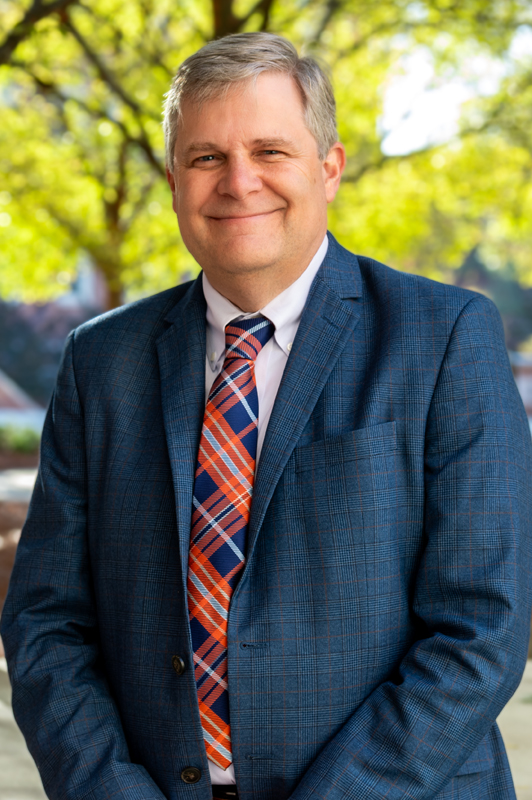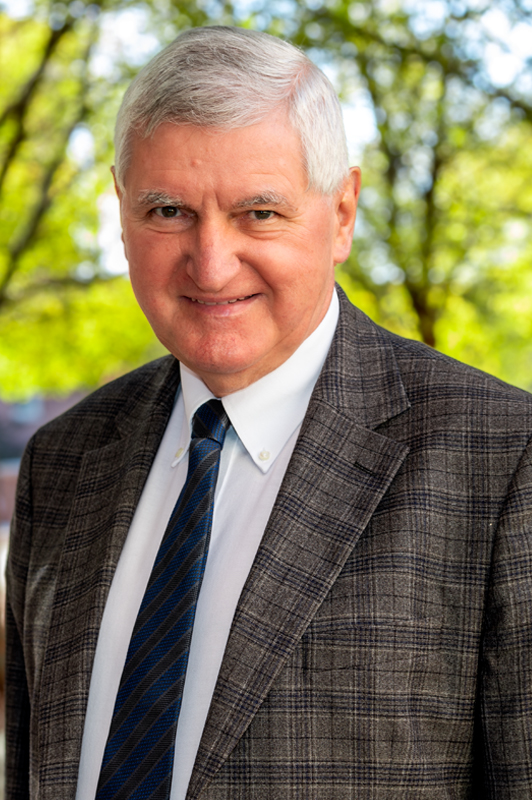Doctoral defenses must go on for the Samuel Ginn College of Engineering
Published: Mar 23, 2020 12:57 PM
By Cassie Montgomery
Years of work and preparation go into defending one’s doctoral dissertation and the Samuel Ginn College of Engineering is not letting the transition to remote instruction halt doctoral candidates’ progress toward earning their Ph.D. on schedule.
To help stop the spread of COVID-19, Auburn University announced a transition to an alternate operations model with an emphasis on social distancing beginning on March 16 and lasting until at least April 10. With this change came the implementation of remote instruction, distance learning and remote dissertation defenses.
Remote defense: A first for the Department of Civil Engineering
Recently, doctoral candidate Victor Aguilar successfully defended his dissertation in the Department of Civil Engineering’s first completely remote dissertation defense. Prior to this experience, only individual members of the Ph.D. committee would participate remotely when necessary, with the majority of the committee and the candidate together in the same room.
“This was the first exam and defense for me in which the candidate was remote or in which everyone was participating remotely,” said Robert Barnes, associate professor of civil engineering and co-chair of Aguilar’s dissertation committee. “With the number of courses and technical conferences and meetings in the near future that just got shifted to a virtual footing, we are all going to be adept at this very soon.”
As his defense approached, Aguilar considered the possibility of having to defend his dissertation remotely, though not entirely seriously at first. “My committee chair and I initially talked about the possibility of an online defense but it seemed like a distant possibility, even a joke maybe,” he said. “But the instructions from the Graduate School were very clear and specific – oral examinations, including thesis and dissertation defenses, should be conducted remotely.”
Logistically, the defense was facilitated via Zoom, a virtual meeting software. Aguilar shared his computer screen so that all attendees could see his visual aids while he presented his research. As with all dissertation defenses, there was a public portion in which attendees see the candidate’s research presentation and get to question the candidate about his or her findings, in this case using the audio or chat function available through the software. For the closed portion, the committee and the candidate participated using both video and audio. Then, when the examining committee needed to deliberate, Aguilar left the meeting until the committee was ready to invite him back.
“I was surprised by the efficiency of the remote defense,” said Andrzej Nowak, professor and chair of the Department of Civil Engineering who was also chair of Aguilar’s dissertation committee. “It really felt as if everyone was in one room. In a way, this was even better than having a larger group together in a small conference room. I plan to explore the possibility of holding future defenses remotely.”
Candidates find silver lining in defending remotely
Michael Minkler, a Ph.D. candidate in chemical engineering, will soon be defending his dissertation remotely. When he learned that the format of his defense would need to change from in-person to video conference, he said he was “initially perturbed” due to unfamiliarity with online conference platforms.
“But as the first week of remote operations progressed and I have had the chance to interface with my research group and advisor multiple times, my confidence has certainly grown,” Minkler said.
One unique aspect of the remote defense is that it opens up the opportunity for more individuals than usual to attend and participate in the public portion.
“If anything, that’s the silver lining in this ordeal,” Minkler said. “Now my family from Missouri will be able to attend my final defense online.”
Aguilar also appreciated this aspect of defending remotely and joked about the slightly less-formal circumstances, when compared with traditional in-person defenses. “On the bright side, many friends that are now working in different states attended my defense,” he said. “My sister and my former advisor from Chile also were able to see the defense. I joke with friends about wearing sweatpants and sneakers – of course I didn’t, or did I?”
Helpful tips for candidates and faculty committees
Practice and preparation summarize the top tips that Aguilar had for fellow doctoral candidates with remote defenses approaching. He rehearsed his presentation over Zoom, practicing sharing his screen, making notations and made sure his microphone worked. He cited tools such as the highlighter option on PowerPoint and utilizing the closed caption feature to help keep the audience’s attention.
“Above all, keep calm,” he said. “You’ve made it this far. One more obstacle will not matter. Believe me, you’ve got this.”
Barnes offered several tips for other faculty committees approaching remote dissertation defenses in the coming weeks:
- Be prepared
- Practice with the technology, specifically meeting hosting, audio and video control, screen presenting and screen writing
- Record the public portion of the presentation and examination to share with others later
There was one aspect of the remote experience that stood out to Barnes – the inability to congratulate the successful candidate in-person.
“This was, by far, the most bizarre aspect, which is an indication of how smooth the whole process was,” he said.
Media Contact: , cmontgomery@auburn.edu, 334.844.3668Victor Aguilar



